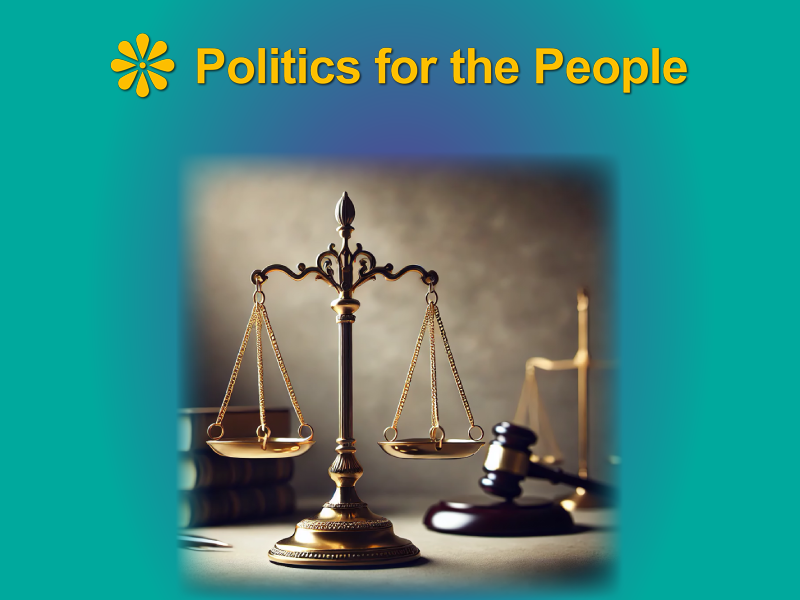Introduction
Freedom and responsibility are the twin pillars of an ideal society. When these two principles coexist harmoniously, they create a stable and flourishing community. However, when the balance tilts too far in favour of freedom without responsibility, chaos ensues. This article delves into the importance of keeping this delicate balance and the repercussions of prioritizing freedom over responsibility.
The Delusion of Unrestricted Freedom
Understanding Absolute Freedom
Freedom is a cherished and fundamental value in any society. It allows individuals to express themselves, make choices, and pursue happiness. However, absolute freedom, devoid of responsibility, can lead individuals down a treacherous path. Unbridled freedom blurs the lines between right and wrong, causing individuals to act without considering the consequences of their actions. This lack of accountability can undermine the very foundations of order and civility that hold society together.
The Dangers of Unchecked Freedom

When one’s actions lack accountability, chaos quickly follows. Unchecked freedom allows for behaviours that can harm others and disrupt social harmony. For instance, if everyone were free to act solely based on personal desires without regard for others, societal norms and laws would lose their meaning. This scenario could lead to increased crime, disorder, and a breakdown of community trust. Without responsibilities, individuals may prioritize personal gratification over collective welfare, leading to social fragmentation.
The Erosion of Social Bonds
Responsibility is the glue that holds a society together. It compels individuals to consider how their actions affect others, fostering choices that promote harmony and well-being. When freedom is divorced from responsibility, the fabric of social bonds begins to unravel.
The Rise of Self-Interest
In a society where self-interest and personal gratification take precedence, trust, empathy, and cooperation erode. Communities become fragmented, and the collective pursuit of common goals gives way to anarchy. The erosion of these social bonds weakens the community’s ability to function effectively and meet the needs of its members. Without the checks and balances provided by responsible behaviour, societal cohesion diminishes, making it difficult to address shared challenges and achieve shared goals.
Apathy and Neglect
Freedom without responsibility breeds apathy and neglect. If individuals are not held accountable for their actions, they may neglect their duties to others and the environment.
Manifestations of Neglect
This neglect can take various forms, such as not fulfilling civic responsibilities, disregarding ethical principles, or exploiting resources without regard for the consequences. Over time, such neglect accumulates, leading to societal disarray and environmental degradation. For example, neglecting environmental responsibilities can result in pollution and climate change, which have far-reaching effects on public health and the planet’s sustainability. Similarly, neglecting civic duties, such as voting and community involvement, can lead to weakened democratic processes and diminished public trust in institutions.
The Vacuum of Leadership
In the absence of responsibility, a vacuum of leadership becomes pronounced. Leaders in government, institutions, and communities bear a significant responsibility to safeguard the welfare of those they lead.
Consequences of Self-Serving Leadership
Unchecked freedom allows leaders to succumb to self-serving interests, neglecting their duty to uphold justice, fairness, and social welfare. This vacuum of leadership can give rise to authoritarianism, corruption, and exploitation, perpetuating a cycle of chaos and inequality. When leaders prioritize personal or political gain over the public good, they erode public trust and undermine the legitimacy of their institutions. Effective leadership is crucial for keeping the balance between freedom and responsibility, ensuring that societal needs are met, and justice is upheld. In contrast, responsible leaders set examples for others, fostering a culture of accountability and ethical behaviour.
Conclusion
Freedom without responsibility is a double-edged sword that can unleash chaos upon society. To foster a thriving society, individuals, communities, and institutions must understand the symbiotic relationship between freedom and responsibility. Embracing freedom with a strong sense of responsibility ensures a society that thrives on order, empathy, and collective well-being. Through mindful actions, mutual respect, and a shared commitment to the common good, we can safeguard our societies from the perils of chaos and create a world that cherishes both freedom and responsibility.
Call to Action
Reflect on your role in upholding the balance between freedom and responsibility. Share your thoughts on how we can collectively build a more responsible and free society. Your actions and perspectives can contribute to creating a more balanced and harmonious community.
Question for Readers
How do you keep the balance between freedom and responsibility in your daily life? What practices or principles guide you in ensuring that your freedom does not impinge on the rights and well-being of others?
Share This Article
If you found this article insightful, please share it with your contacts and on social media to spread awareness about the importance of balancing freedom and responsibility in society.
Reference:
The Common Good: https://plato.stanford.edu/entries/common-good/
The Security Versus Freedom Dilemma. An Empirical Study of the Spanish Case: https://www.frontiersin.org/articles/10.3389/fsoc.2022.774485/full
Priorities and human rights: https://www.tandfonline.com/doi/full/10.1080/13642987.2018.1562917
The continuing tensions between individual rights and public health: https://www.ncbi.nlm.nih.gov/pmc/articles/PMC2267241/
Freedom “to” vs. Freedom “from”: https://www.bu.edu/sph/news/articles/2017/freedom-to-vs-freedom-from/
Homelessness is a Human Rights Issue: https://humanrights.gov.au/our-work/rights-and-freedoms/publications/homelessness-human-rights-issue

